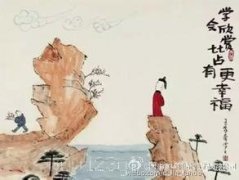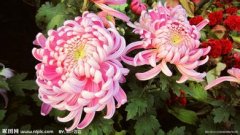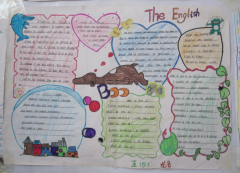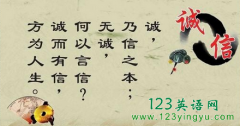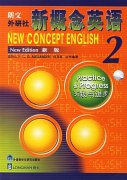人教版高中英语选修8Unit1课文复习(含答案)
编辑:高中作文网
Unit 1 A land of diversity
CALIFORNIA
California is the third _____ state in the USA but has the largest population (over 30 million people). It is also the most m_____ state in the US. This is not s_____ when you know the history of California, which, at v_____ times, has attracted people from nearly every country in the world.
Native Americans
Exactly when the first people arrive in _____ we now know as California, no one really knows. H_____, it is likely that Native Americans were living in California at l_____ fifteen thousand years ago. Scientists believe that these first settlers c_____ the Bering Strait form Asia to Alaska by m_____ of a land bridge which existed in prehistoric times, In the 16th century, after the arrival of Europeans, the native people s_____ greatly. Thousands were killed or forced into slavery. In a_____, many died from the diseases ____ (bring) by Europeans. However, some survived these terrible times and today there are more Native Americans living in California than in ____ (a. any b. any other) state.
The Spanish
In the 18th century, California was r_____ by Spain. Spanish soldiers first arrived in South America in the early 16th century w_____ they fought ____ (a. against b. for) the native people and took their land. Two centuries later, the Spanish had s_____ in most parts of South America and along the northwest coast of ____ we now call the United States. Of the first Spanish to go to California, the ____ (major) were religious men who came to teach the Catholic r_____ to the natives. In 1821, the people of Mexico gained their i_____ from Spain. California then became part of Mexico. However, in 1846 the United States d_____ war on Mexico and after it l____ the war, Mexico had to give California to the United States. However, there is still a strong Spanish i_____ in the state. This is why today over 40% of California speak Spanish _____ a first or second language.
Russians
In the early 1800s. Russian fur trappers, who had _____ (origin) gone to Alaska, ____ (a. began b. beginning) settling in California. Today there are about 25,000 Russian-Americans _____ (live) in and around San Francisco.
Gold Miners
In 1848, not long after the American-Mexican war, gold _____ (discover) in California. The dream of becoming rich quickly a_____ people from all over the world. The nearest, and therefore the first ____ (arrive), were South Americans, and people from the United States. A_____ from Europe, then later from Asia and even the Pacific Islands, soon f_____. In fact, few a_____ their dream of becoming rich. Many died or returned home, but most r_____ in California to make a life for themselves in the new towns or on farms. ____ (a.At b. By) the time California became the thirty-first state of the United States of American in 1850, it was already a m_____ society.
Later Arrivals
Although Chinese i____ began to arrive during the Gold Rush Period, it was the building of the railway from the west to the east coast _____ brought even _____ (large) numbers to California in the 1860s. Today, Chinese-Americans live in all parts of California, although a large p_____ have chosen to stay in the “Chinatowns” of Los Angeles and San Francisco.
Italians, mainly fishermen but also some wine makers, a_____ in California in the ____ (a. late b. later) 19th century. In 1911 immigrants from Denmark established a town of their own, which today still k_____ up its Danish culture. By the 1920s the film industry was well e_____ in Hollywood, California. The industry attracted Europeans, ____ (include) many Jewish people. Today, California has the second largest Jewish p_____ in the United States. Japanese farmers began arriving in California at the beginning of the 20th century and since the 1980s a lot more _____ (settle) in California. People from Africa ____ (a. have been lived b. have been living) in California since the 1800s, w_____ they moved north from Mexico. However, even more arrived b_____ 1942 and 1945 when they came to California to work in the ship and aircraft i_____.
Most Recent Arrivals
In more recent decades, California _____ (become) home to people from Asia, i_____ Cambodians, Koreans, Vietnamese and Laotians. Since its beginning in the 1970s, the computer i_____ has attracted Indians and Pakistanis to California.
The future
People from different parts of the world, ____ (attract) by the climate and lifestyle, still immigrate to California. It is b_____ that before long the mix of nationalities will be so great that there will be no major ____ (race) or cultural groups, but simply a m_____ of many races and cultures.
George’s diary 12-14 June
Monday 12th, June
Arrived early this morning _____ bus. Went straight to hotel and dropped my l_____, then went exploring. First thing was a ride on a cable car. From top of the hill got a spectacular v_____ of San Francisco Bay and the city. Built in 1873, the cable car system was i_____ by Andrew Hallidie, who wanted to find ____ (a. the better b. a better) form of transport than horse-drawn trams. Apparently he’d been s_____ when he saw a terrible accident in which a tram slipped down the hill ____ (drag) the horses with it.
Had a late lunch at Fisherman’s Wharf. This is the district _____ Italian fishermen first came in the late 19th century and began the f_____ industry. Now it’s a tourist area _____ lots of shops, seafood restaurants and bakeries. It’s also the place to catch the f_____ to Alcatraz Island and other places in the Bay.
Did so much exploring at Fisherman’s Wharf, am e_____ and don’t feel like _____(do) anything else. Early night tonight!
Tuesday 13th, June
Teamed _____ with a couple from my hotel (Peter and Terri) and hired a car. Spent all day d_____ around city. There’s a great drive marked out for tourists. It has blue and white s_____ with seagulls on them to show way to go. It’s a 79km round-trip that t_____ in all the famous tourist spots. Stopped many times to admire the view and _____ photographs. Now have really good i_____ of what the city’s like.
In evening, went to Chinatown with Peter and Terri. Chinese i_____ settled in this area in the 1850s. The fronts of the building _____ (decorate)to look like old buildings in southern China. Some _____ (interest) temples here, a number of markets and a great _____ restaurants. Also art galleries and museum _____ (contain) documents, photographs and all s____ of objects about the history of Chinese immigration, but it’s c_____ in the evening. Will go back during the day. Had a delicious meal and then walked back down the hill to our hotel.
Wednesday 14th, June
In morning, took ferry to Alcatraz Island in the middle of San Francisco Bay. On the w_____ had a good view of Golden Bridge. From 1934 to 1963 there was a famous prison on the island _____ all the most dangerous prisoners were kept. The c_____ in the prison were terrible. The cells were very small, cold and d_____; some didn’t even have light. Prisoners were not a_____ to read the newspaper or even talk to each other. The water around the island is swift and f_____ cold. Only 36 prisoners ever attempted to e_____. Some were shot, but most were pulled out of the water by the guards. Five disappeared, probably d_____. No one is known to ______ (escape).
参考答案
Unit 1 A land of diversity
CALIFORNIA
largest;multicultural;surprising; various; what; However;least; crossed; means; suffered;addition;brought;any other;ruled; when; against;settled;what; majority;religion ; independence;declared;lost; influence; as; originally; began; living; was discovered; attracted; to arrive;Adventurers ; followed;achieved;remained; By;multicultural; immigrants;that;larger ; percentage; arrived; late; keeps;established;including; population;have been doing; have settled; when;between;industries; has become;including;industry;attracted;believed;racial;mixture.
GEORGE’S DIARY 12-14 June
By; luggage, view; invented; a better; shocked; dragging; where; fishing; with; ferry ;exhausted; doing; up; driving; signs; takes; take; idea; immigrants; are decorated;interesting; many;containing; sorts; closed; way; where; conditions; damp; allowed; freezing; escape; drowned; have escaped.

